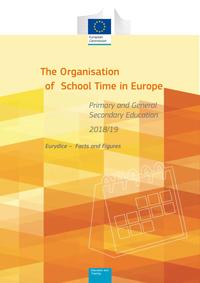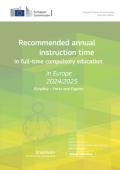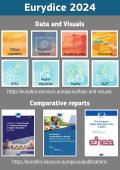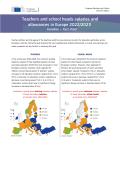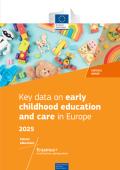The Organisation of School Time in Europe. Primary and General Secondary Education – 2018/19
Full version EN
How is the school year organised across Europe? Despite some differences, countries show many similarities regarding the structure of their school calendars. In 10 countries/regions, school generally starts in August. The countries where the school year begins the earliest are Denmark and Finland. With regard to the number of school days, it varies between 156 days in Albania and 200 days in Denmark and Italy. In general, the number of school days is the same in primary and secondary education, but there are a few exceptions: in France (upper secondary education), Greece (in secondary education, teaching days and exam days are included) and Serbia for example, the number of schools days is higher in secondary education than in primary.
This report, based on national data, gives an overview on the length of the school year, the start and the end dates, the timing and length of school holidays and the number of school days. It covers both primary and general secondary education and key points are illustrated by comparative figures. The information is available for 38 countries participating in the EU's Erasmus+ programme (28 Member States, Albania, Bosnia and Herzegovina, Switzerland, Iceland, Liechtenstein, Montenegro, Norway, Serbia, the former Yugoslav Republic of Macedonia, and Türkiye).

